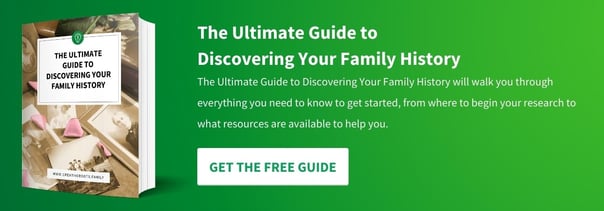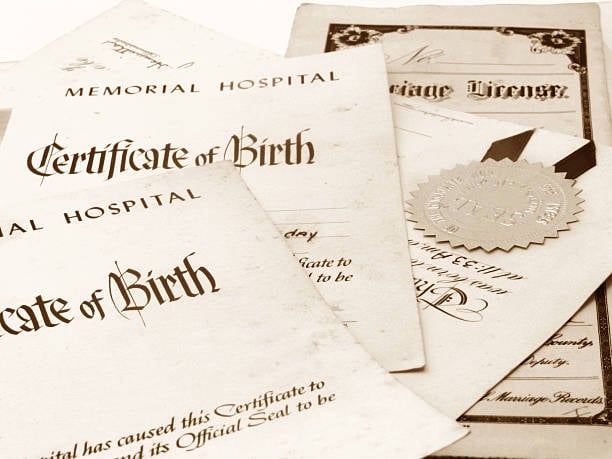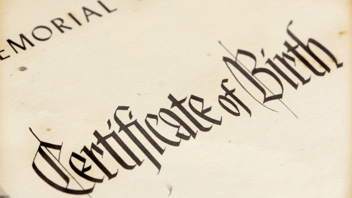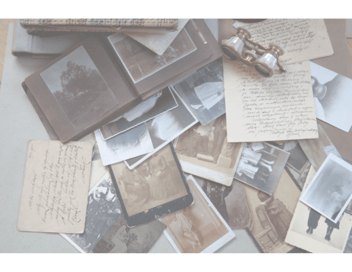How to Conduct Effective Research on Your Family's History
Are you interested in learning how to conduct effective genealogical research? Whether you are just starting out or have been researching your family history for years, there are always ways to improve your skills.
In this article, we will be discussing how to conduct effective genealogical research. We will cover topics such as organization, flexibility, and using different types of evidence. By the end of this article, you will have the tools you need to improve your genealogical research skills.
Quick tips
One of the most important things to remember when doing genealogical research is to be organized. Keep track of the sources you have consulted and the information you have found. This will save you a lot of time and frustration later on. A research log would be a great tool to use for this as it will save you mountains of time and eliminate a lot of repeated work.
Another important tip is to be flexible. The further back you go in time, the less likely you are to find accurate records. Be prepared to make educated guesses and use other types of evidence to fill in the gaps.
Last but not least, don’t forget to have fun! Researching your family history can be a rewarding and fascinating hobby.
Define Your Research Goals.
1. Define Your Research Goals: The first step to effective genealogical research is defining your goals. What do you hope to accomplish with your research? Do you want to learn more about a specific ancestor, or trace your family history back as far as possible? Once you know what you want to achieve, you can develop a plan of action and set some realistic expectations.
2. Develop A Plan Of Action: Once you have defined your research goals, it's time to develop a plan of action. How are you going to undertake this research? Will you be doing it yourself, or enlisting the help of professional researchers? Consider all of your options before moving forward with your project.
3 Set Realistic Expectations: It's important to set realistic expectations when embarking on any kind of family history research project-genealogical or otherwise. Keep in mind that there may be less information available for some ancestors than others and that the process can often take much longer than anticipated. If you go into your survey with an open-minded flexible attitude, however, the chances are good that you will still find the experience rewarding regardless of the final outcome.
Identify Key Resources.
There are many resources available to help with your genealogical research. The key is knowing how to use them effectively. Here are some tips:
First, start with what you know. Gather information from family members, old letters and documents, etc. This will give you a good starting point for your research.
Next, look for online databases and websites that specialize in genealogy research. These can be extremely helpful in finding records and information about your ancestors.
Finally, don't forget about libraries and archives! They can have a wealth of historical data that can help fill in the pieces of your family's story
Develop A Research Plan.
When you set out to do genealogical research, it is important to have a plan. This will help ensure that you are efficient with your time and resources and that you get the most from your efforts. Here are some tips on how to develop an effective research plan:
Start by identifying what you know about your ancestors. Write down everything you already know, no matter how small or insignificant it may seem. This will give you a starting point for your research and help focus your efforts.
Next, decide what specific information you want to learn about your ancestor. Do you want to find their birth date? Or death date? Maybe you're looking for marriage records or obituaries? Once you've decided what type of information you need, start planning where to look for it – online databases, local archives, family papers etc.
Lastly, make sure to keep track of all the different sources of information as well as any new leads or clues that come up during your search. A good way to organize this is by developing a hypothesis board where you can postulate different theories based on evidence collected during your investigation. By taking these steps, you'll be able to conduct more effective genealogical research and uncover more pieces of y our family's history!
Search For Records.
There are many ways to conduct effective genealogical research. One way is to search for records. This can be done by visiting the local library, searching online databases or contacting government offices. Another way to conduct effective genealogical research is to interview family members and ask questions about their ancestors. This can provide valuable information that may not be available in records. Finally, it is also helpful to read books and articles about conducting genealogical research so that you can learn from the experts how best to go about it.
Analyze And Organize Your Findings.
Analyzing and organizing your findings is a critical step in effective genealogical research. By taking the time to analyze your data, you can ensure that you are making the most of the information you have gathered. Additionally, by organizing your findings, you can make it easier for yourself and others to locate specific pieces of information when needed. Here are some tips on how to effectively analyze and organize your genealogical data:
1. Review all of the data you have collected from various sources. Look for patterns or trends among different family members or generations. This will help give you clues as to where to look next for additional information about your ancestors.
2. Create a system for categorizing and storing all of the documents, photos, etc., that you have collected during your research project. This will make it much easier to find specific items when needed and prevent important items from getting lost over time.
3. Make use of technology tools such as spreadsheets or databases software programs which can help manage large amounts of genealogical data more efficiently than traditional paper-based methods.
4. Periodically review and update organization systems as new materials are acquired, and revise conclusions based on newly discovered evidence. Changes occur within families over time ( births, deaths, marriages, divorces, etc .)
Conclusion
In conclusion, collecting and organizing information about your family history can be a daunting task. However, with these tips, you can get started on the process and ensure that your research is effective and your findings are properly organized. The most important thing is to start somewhere and keep track of what you find. Once you have a good foundation of information, it will be easier to add new pieces as you come across them. So do not delay – begin your journey into discovering your family's story today!
Download your copy of our Ultimate Guide to Discovering Your Family History. To help keep your records together, download your free copy of a collection of Genealogical Charts and Templates.


Article by Carol Walsh
Carol Walsh is the CEO of Creative Roots, a professional genealogy company. She has a passion for preserving family history and storytelling. Carol's research methodology centers around fact-finding and publishing in a format that readers can use to preserve the stories. Her ultimate goal is to help families connect with their past and each other.





